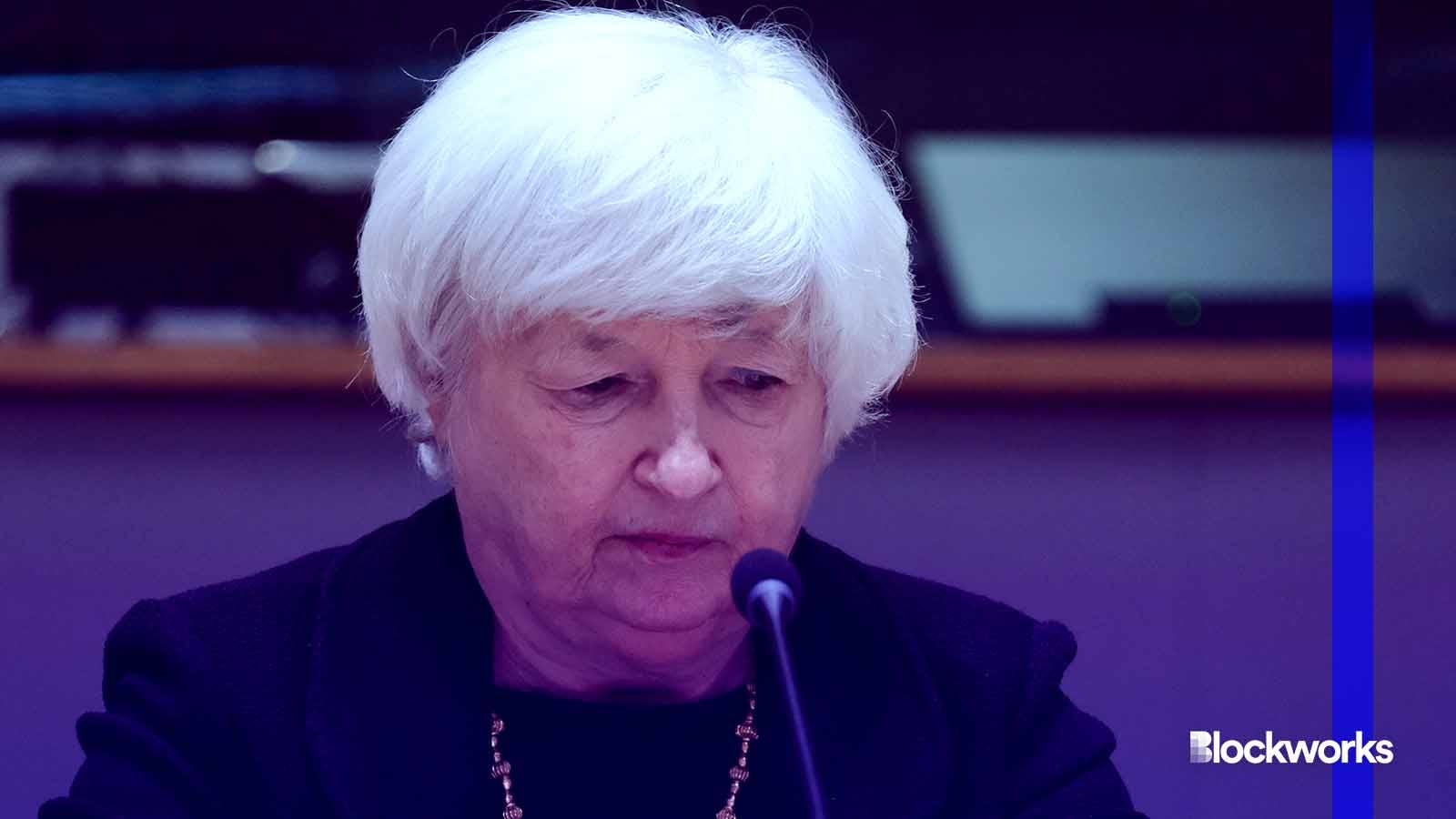Yellen: Historic Binance settlement “sends message” to crypto industry
Binance will pay $4.3 billion as part of the settlement announced Tuesday

Alexandros Michailidis/Shutterstock modified by Blockworks
The Department of Justice formally announced a series of actions against Binance, including a whopping $4.3 billion in fines and forfeitures, one of the largest corporate penalties in US history.
Attorney General Merrick Garland, Treasury Secretary Janet Yellen, CFTC chair Rostin Behnam and Deputy Attorney General Lisa Monaco appeared at the joint press conference hosted by the DOJ. The exchange, under CEO Chengpang Zhao’s leadership, knowingly and willingly broke the law and helped others do the same, Garland said during Tuesday’s press conference.
“Binance also did more than just fail to comply with federal law,” Garland said. “It pretended to comply.”
Zhao announced his departure from the exchange Tuesday afternoon.
Binance’s compliance team, Garland alleged, knew the exchange was used for money laundering and illicit financial activities.
“In a February 2019 chat, one compliance employee wrote that they needed a banner that said, quote is washing drug money too hard these days? Come to Binance, we got cake for you,” Garland said.
“Almost two years after Binance’s founding, Zhao told senior management that the US market represented 20% to 30% of the company’s potential revenue,” Garland said. “Serving these US customers meant that Binance was a US financial institution. US financial institutions must comply with US law, Zhao and other senior management at Binance understood this.”
The heads of the CFTC, Treasury and DOJ announced that Binance pleaded guilty to anti-money laundering violations, conducting an unlicensed money transmitting business and violating sanctions laws.
In an unsealed indictment made public Tuesday, the US government accused Binance and CEO Changpeng Zhao of violating anti-money laundering laws, and sanctions laws.
“Defendants chose not to comply with US legal and regulatory requirements because it determined that doing so would limit its ability to attract and maintain US users,” the DOJ claimed.
In a press release shared with Blockworks, the Treasury Department announced that it would
“retain access to books, records, and systems of Binance for a period of five years through a monitor.”
“Today’s settlements are part of a global agreement simultaneous with Binance’s resolution of related matters with the DOJ and the CFTC,” the Treasury statement continues.
The $4.3 billion is a summation of a criminal fine imposed by the DOJ and a $2.5 billion forfeiture. Blockworks previously reported that sources familiar had believed the number to be between $4 and $5 billion.
Binance, in order to aid law enforcement’s investigations into illicit activity, “agreed to a lookback to identify and report to FinCEN the suspicious transactions that it processed and willfully failed to report.”
Zhao pleaded guilty to violating anti-money laundering laws, and agreed to step down as part of the plea deals signed off on by both Zhao and Binance. Earlier Tuesday, the Wall Street Journal reported that Zhao would step down and enter a guilty plea in a Seattle courtroom.
The deal between the DOJ and Binance allows the crypto exchange to continue operating, ensuring that a potential collapse — similar to what happened with FTX a year ago this month — is off the table.
The Securities and Exchange Commission — which has an open case against Binance — was notably absent from the conference.
Absent from the announcement is any mention of customer funds being commingled, a claim that the SEC is pursuing in its case against the crypto exchange.
The CFTC sued Binance back in March, alleging that the exchange made commodity derivatives transactions both to and for US-based people since 2019. The complaint also alleged that Binance attempted to skirt regulation knowingly. Zhao was also named as a defendant in the suit.
News first broke of the conference on Tuesday morning, with the DOJ saying that the conference would be focused on “significant cryptocurrency enforcement actions,” further noting that the actions would be “separate but related.”
This is a developing story.
Get the news in your inbox. Explore Blockworks newsletters:
- The Breakdown: Decoding crypto and the markets. Daily.
- 0xResearch: Alpha in your inbox. Think like an analyst.






